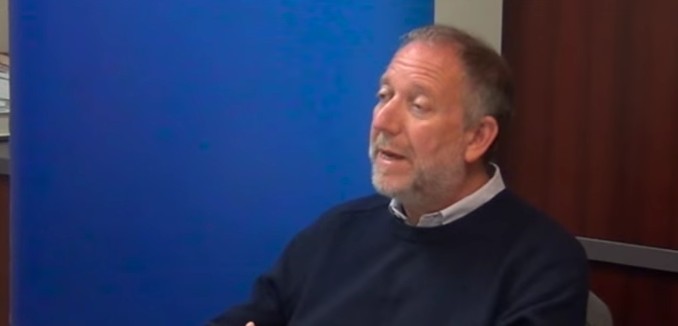In an essay published Wednesday in The New Republic, Yossi Klein Halevi celebrates the resilience shown by Israelis during Operation Protective Edge, when nearly all of Israel came under attack by Hamas rockets and mortars, by concluding that the message Israel sent its enemies is, “We’re here to stay.”
In the essay, Klein Halevi identified how the aim of Israel’s enemies has changed from seeking military victory to seeking psychological victory:
A new ceasefire may have finally ended this summer’s fighting. But for Israelis, the Gaza conflict is only the latest round in a highly effective war on civilian Israel—a war that began in September 2000, with the collapse of the Oslo process, and that continues, with prolonged ceasefires between battles, to this day. And the goal is to undermine Israel’s long-term viability in a radicalizing Middle East. …
The goal of these multi-front attacks on civilian Israel is to undermine Israelis’ confidence in the ability of their government and their army to defend them. That is why it is of secondary importance whether the rockets Hamas launches are sophisticated or home-made, or even whether they actually kill anyone. Their success isn’t measured by death toll but by psychological impact. Dead Israelis are a bonus; the purpose is to terrorize. As Yasser Arafat, the late PLO leader and master of psychological warfare, once put it, the goal of terrorism is to provoke Israeli despair, which would ultimately result in the wholesale emigration of Israel’s middle class and the collapse of the Jewish state.
Klein Halevi praises Israeli society for winning psychologically:
The only good news from this terrible summer of 2014 is that we’ve once again surprised ourselves with our resilience. When Hamas released a video of a song (sung in bad Hebrew) threatening terror attacks, Israelis countered with YouTube clips of young people dancing to the catchy Hamas tune in the streets of Tel Aviv. Other young Israelis went into battle singing the Hasidic song, “The whole world is a narrow bridge and the main thing is not to be afraid.” It was a psychological message of its own: We’re here to stay.
In the October 2013 issue of The Tower Magazine, editor David Hazony profiled Klein Halevi in Of Utopian Dreamers and the Israeli Spirit. Klein Halevi described Israel as “depolarized,” which, perhaps, contributes to its resilience.
As Klein Halevi has pointed out elsewhere, politically Israel has transformed from a polarized society where the peace camp and the dream of the Land of Israel competed not just for the imaginative heart but also for political power in the country. These camps no longer have their pull. Politically Israel has depolarized, unifying around a skeptical pragmatism that still wants peace but not at the cost of fanciful illusions. And it has also de-utopianized: Today it’s about the next Israeli app bought out by Google or the next TV show sold to HBO.
Below is a video of Klein Halevi from July 2014 talking about the challenges that Hamas posed to Israeli society during Operation Protective Edge.
[Photo: AIJACvideo / YouTube ]




